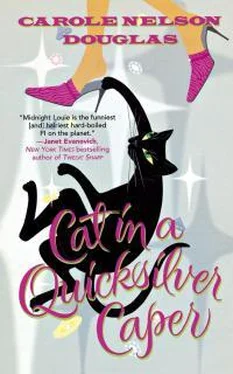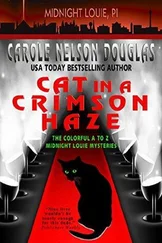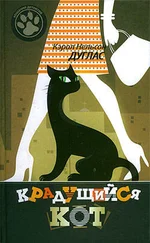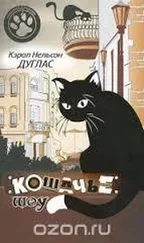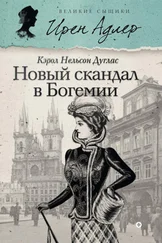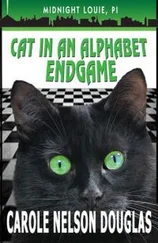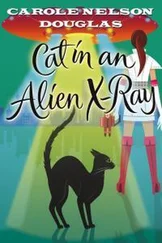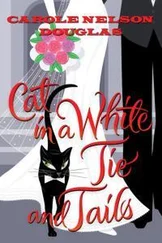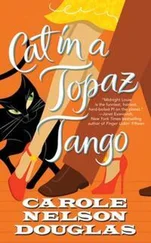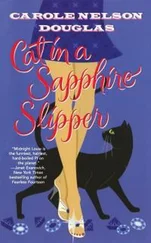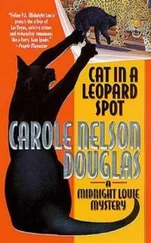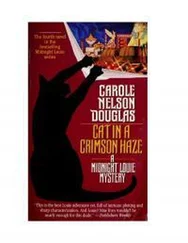“Yes, a long-lost one. I had no idea until the police confronted me with evidence of his identity. He was the only family member besides me who left for America. I sought art, he sought profit. Still, I had a soft spot for him. Is that the expression? Yes. He wished to seize this world and make it his, as I did. He had a crooked leg and insufficient art, thus he took the name ‘Art.’ He had a certain nerve and desire. I liked him. He was the peasant, asking for more than crumbs from the indifferent table.
“Early on, I found employment for him among my company, but he had higher ambitions and lower means. He left. I never saw him for, um, perhaps twenty years. Until he hung dead over this exhibition and of course had become unrecognizable to me. That clown-white painted face was both a disguise to the end and an editorial comment.”
“You don’t think it odd that the person who threatened this show, this exhibition, should be a shirt-tail relative of yours?”
“ ‘Shirt tail.’ So casual. So American. No, I don’t think it odd. I think that this exhibition brilliantly combines Old World and New. Old troubles and new ones.”
“Had he become a terrorist?”
“Andrei? He had not a political bone in his body. He had no bones at all. He was a tool, not a terrorist.”
What a pitiless assessment of a life. A death.
“And what of Ivan Volpe?”
“What of him?” Madame Olga asked with supreme indifference.
“Might he have a motive for disrupting the exhibition or stealing the scepter?”
“He has a motive for self-advancement. He is one of those sad, professional displaced Russians, consoling themselves with exile in Paris. His whole family was of the same, spineless stock. First to leave, and last to lament the great, grand old days. I would not be surprised if he would some day soon produce another candidate as offspring of the mystical Anastasia.”
“Czar Nicholas’s daughter who was rumored to have escaped the family slaughter.”
“People love legends that never die. Why else does Swan Lake persist, and the paintings of Van Gogh. And sightings of Elvis Presley? Even those who are not Russian need their icons.”
Icons referred originally to the gilt-touched paintings of Russian Orthodox saints. Like many specific words, it had been adapted to apply to modern idols as well as holy figures: to rock stars and Hollywood legends. Even to a blue-collar boy from Tupelo, Mississippi. Just as the word “diva” had been plucked from the operatic world to revert to pop music stars.
Things always went from the sublime to the ridiculous, Temple reflected. Maybe even murder.
Temple nodded her thanks to Madame Olga for her time and her insight. She skittered across the tabletop, pushing papers away like leaves, and hopped down onto solid ground to push her toes back into her usual high heels.
She wasn’t sure she needed to feel taller anymore. Just grounded.
A Bottle of Red, a Bottle
of White Russian
He scared her.
She’d asked for this interview, but it scared her.
She wasn’t the police. She was a PR person with a license to snoop. She was messing in what could turn out to be an international incident, but she had a pressing need to know. For her job. For her peace of mind about what had happened on her watch.
So she was scared, not because he was a scary guy, he was just so totally different. He was a living legend. A Russian aristocrat who’d become a French citizen. The aristocrat and French parts were paramount.
Temple recognized that Ivan Volpe was a rare breed, someone a midwestern mutt like herself would ordinarily never have crossed paths with. Except in Las Vegas. She also recognized that he traded on his unique, blue-blood-drenched background to make himself into a high-flying standard of the Jet Set.
Madame Olga was an aristocrat of the stage. Temple could recognize that honor and deal with it. Danny Dove was a commercial version of Madame Olga. Their common tongue was “theater, dance, art,” and Temple spoke that, albeit humbly.
But “Count” Volpe. He flummoxed her.
She had been an essay contest finalist once, back in college, for one of those “one-year editorships” at a women’s fashion magazine. Several months of demanding editorial entries had culminated in a group of twelve finalists spending five days inside a Manhattan whirlwind learning experience. The two midwestern finalists were like token blacks: in for the appearance of equity, out for the reality.
She had met him before. The Ivan Volpe, a Russian émigré with an Italian last name. Her, a tiny girl in a little black cocktail dress (the magazine had corrected her self-description to “after-five” dress) introduced in a Manhattan penthouse to a tall, aristocratic Russian émigré, a consulting director, impoverished but possessed of major snob appeal, at a cocktail (Temple hoped that designation was chichi still) party catered totally by blacks in black tail serving platters featuring gross and relatively raw truncated parts of animal life.
“Do you speak Russian?” the anorexic magazine editor who’d introduced her to this blanc eminence had asked Temple over the beef tartare.
Heck, no! Why should she?
Probably because it was the current trendy major at the Eastern women’s colleges. Minnesotans like Temple majored in English. Duh.
“No!” Temple had dead panned in a Russian accent right out of Ninochtka (the thirties movie with Garbo; if you’re gonna steal, steal from the best). “I do not speak Rrrrussian.”
A dead pause.
When Volpe had laughed, long and hearty, the snooty editor had been required to produce an anemic snark.
Temple hadn’t won the competition, although she’d seen signs that her entries had been winners. A deadly dull girl from an Eastern “Sacred Seven” college and an über-wealthy and aristocratic family had won. And to think all this American aristocracy had started with that dinky scruffy ship called the Mayflower . Temple had never heard of any of her group of twelve again.
But here was Count Volpe, twelve years later: tall, straight, white-polled, intimidating.
“I do not speak Rrrrussian,” Temple declaimed in her best Garbo voice.
His white lashes blinked. He visibly scanned for the first recording of their meeting, and found it, though he was past ninety now. Then he laughed again.
“Ninochtka! Hah! Your hair used to be Communist red. I remember. Now you are White Russian blonde, but you are still spirited. They were all such bloody bores, weren’t they?”
Temple grinned.
“And look at you! A player on the Las Vegas scene. How can I help you? Dinner, of course. Later. I must discover how you have got here, along with that most . . . interesting hair. I, alas, must take whatever ‘gig’ my advanced age permits. Like reality TV. I have always been a showpiece. Blue blood is very rare in the modern world. I hope not to shed any more than I can spare. But this exhibition seems to require human sacrifice. I remember the last czar, can you believe it? I was an observant and prescient infant. And my memory has always been my meal ticket. Dinner. Will your hotel pay?”
Imagine!
She, Temple Barr, taking a Russian count out to dinner. On her expense account. An account for a count. For which she expected a full account of what was going on at the White Russian exhibition.
“I have become a professional consultant,” he explained as they awaited their cocktails in the Pluto Pavilion restaurant. Pluto was the farthest out planet in the solar system, and this restaurant was the New Millennium’s farthest out in menu and prices.
“Why not?” he asked rhetorically. “I am quotable, suitably distinguished, old but still mobile. I am camera ready. I have nothing to lose.”
Читать дальше
